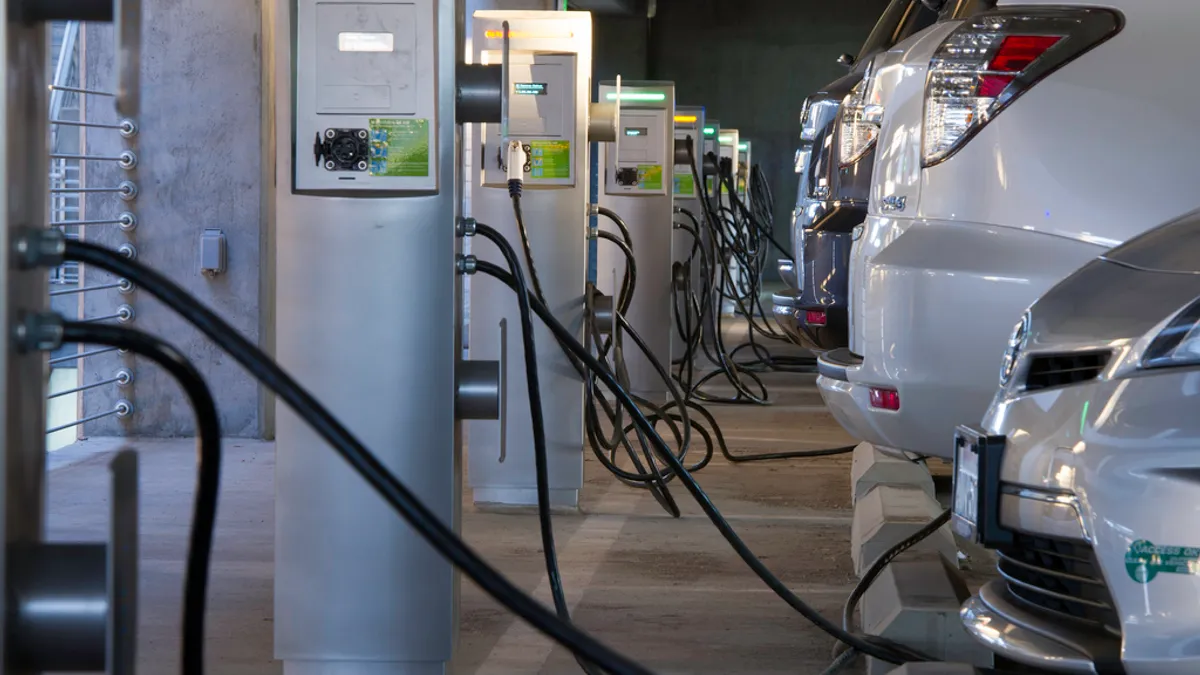Dive Brief:
- Pepco is proposing an off-peak electric vehicle charging rate for drivers in the District of Columbia, offering to reduce rates for avoiding peak hours of noon to 8 p.m.
- A similar rate was approved by the Maryland Public Service Commission two years ago, according to The Washington Post, following a multi-year pilot showing drivers took advantage of the lower rates.
- Pepco has asked the D.C. Public Service Commission to approve a study of the new rate, initially offering it to 100 residential customers, according to WTOP.com.
Dive Insight:
After a Maryland pilot revealed electric vehicle owners would shift their charging times to save money, while simultaneously paying a bit more for clean energy, Pepco officials are considering a similar program in the District.
According to WTOP, in addition to the pilot rate the utility is also proposing to install discounted charging ports.
Up to 50 residential customers could receive discounted installation of a Level 2 charger, along with up to 10 commercial locations. Another 500 residential customers can select a discounted "whole house" rate. If approved, the program would run until late 2019.
Pepco's Maryland pilot revealed a customer willingness to pay for greener power, interest in new rates and an ability to react to demand response events.
"Over 90% of customers participating voluntarily changed their behavior," Rob Stewart, smart grid and technology manager for Pepco, told Utility Dive earlier this year. About 85% of customers opted for the EV-specific rate, indicating a willingness for customers to explore new offerings and potentially more complex programs.
Maryland has about 7,000 electric vehicles on the road, but hopes to reach 60,000. In the District, WTOP reports the number is much smaller, about 600.
Pepco's D.C. charging plan comes about a year after city officials allowed a $6.8 billion merger with Exelon. Regulators approved the deal only after Exelon promised a greater focus on clean energy options, along with provisions to protect D.C. ratepayers.














